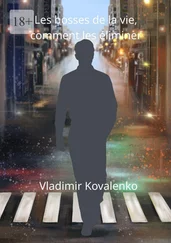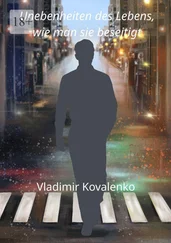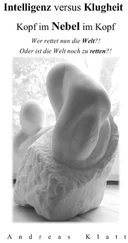Poldka was the name of the crazy woman who lived in the little house with the black roof … She would stir a long, rusty fork in a big kettle, like a witch … She cooked using water that she collected in bowls and buckets under her eaves and in kettles set out on her roof … She amost never came outside … I actually liked her. Despite the fact that her face was always sooty and her hair was just a black fringe. She would sit leaning out the window of her little house. I would chat with her … half using words, half with gestures … Especially about masqueraders, which would make her laugh. She was a kind woman, I could sense it. Not until during one of our conversations when I picked at the cinders did I realize that her house was built out of logs, not sheets of tin … But what was it that kept accumulating in her room behind her? Some bags or other, like in the photos of trenches at the front during the war, and rusty hoops. What was behind all of that?…
There was a little white house that stood above Karel’s turnip patch. With a fine view of the whole village. It was as though it stood there on stilts … a childless man and his wife lived in it … She was a big, fat, ruddy woman. She had a head like a red pumpkin. He was short, inconspicuous, slight … and practically bobbed around in his jacket and big, baggy pants, as though he were wrapped in a cloud. Sometimes he shouted, or sang … He drank elderberry wine. He would stand stock still out in the turnip patch. He couldn’t find the right words for his fun … he just pointed at something and kept grinning. He was his own best parody … Once I saw him standing next to an ox on some stones on the slope beneath the postman’s house … The ox was hauling logs. The little fellow was hauling off at it with the fat handle of a whip. Smack! Smack!.. On its muzzle, its nostrils, on its withers and neck. The ox stayed standing amid the stones like a colossus. Smack! Smack! Something like blood streamed down its muzzle … it spurted … and the forester’s children appeared at the fence. Alongside the furious little stick puppet of a man, the ox was as beautiful as a water sprite compared to an old witch … And it had to endure that revolting elf as it kept hitting it on the muzzle … No! I picked up a stone and … ping!.. it flew straight into the gargoyle’s armpit … “Oowww!” he shouted … But then the ox moved forward … and the forester’s kids attacked from the rear … They rescued me … Then one afternoon there was a sudden commotion with lots of shouting … everybody ran uphill to the house … The fat woman had taken an axe to her sadistic wimp of a husband!.. Everyone came running uphill over the turnip beds … they were shouting as though they’d been skinned, as though they were late to the amusement park … Men, women wearing a hundred skirts, children. Hurry! Hurry! A gendarme was already standing there, brown and red as a cockatoo. He was shouting at them and into the entryway behind him … The woman was sitting at the table in her kitchen … half naked in her linen underthings … arms propped on the table, supporting her head, which was splotchy and red halfway down her back from the sun and from drink … with a liter bottle of brandy … and an open tin of marmalade … With one hand she spooned marmalade into her mouth … or scratched her belly … then glug, glug! from the bottle … There was a puddle under the table that kept creeping forward … Blood! The axe with its long handle, the kind Karel used to teach me to split logs and branches, stood by the door … The gendarme and forester lifted her up … She clutched onto the table as she tried to get upright … and the bottle and marmalade went crashing into the hearth … They brought her a blue coat from the main room with a little wooden heart attached to the collar … And they led her downhill. To a strange, closed wooden cart with two horses whose manes had been cut short … The woman kept scratching her big belly and holding her head back … Everyone stared … The whole hill was awash in horror … They pushed her into the cart from the rear, like some broken thing … everyone crowding around the door … Nothing was visible, except for its gray wall … The gendarme tromped back uphill … This was the first time I saw a murderer, a murderess … The whole time I was waiting for everyone to jump on her, or attack the gendarme to rescue her … I was waiting to see how far they would go in their rage … from what depths they would draw it … But nothing! For a full week that was all they talked about … They were simple … Sheer gossip-mongers … All they had inside them were bruises, cheap wine, and howls … Nothing but meaningless junk … But the women were different … They at least kept all of their music … the moments of great emotion, the moaning, the tears … Everything in my surrounding that was far off and that I didn’t know well enough stayed the same after this murder … But the pear tree in front of the house, the garden, the barn, Karel’s meadow, the turnip beds all refused to change back to the way they were before. They didn’t want to be tamped back into their shells. The shade under the pear tree was black … it ate right into the grass and deep into the dirt … It took a week for me to somehow regain my composure. But I still didn’t feel safe. Not until Sunday, when I went with Karel to mass. I had to. To Prečna on foot … Clusters of peasants were walking down the road. Wearing black shoes, neckties, hats, pocket chains. To hear the word of God … Uncle Jožef drove his carriage past us with his children and wife. He and Karel didn’t exchange greetings. They had been at each other for some time now … I only said hi to Ciril and Ivan, who saluted me back … The church was packed with people singing the holy songs. It stank of cheap wine, tobacco, lavender, and soap. And on account of the soap, that much more strongly of dung, which their shoes had tracked in … Nothing bothered them. What sort of God was it that they imagined, anyway? The priest, wearing a gold-edged scarf over his white shirt, spoke above a stove that had two books lying on it … Calmly, like a teacher who always says the same thing. His voice echoed in a way that was supremely grotesque … But he should have been scolding them, he should have shaken his fist at every last one of them down here, thrown books at their heads, or a cross, or the angels that hung from the stove … Nothing. It was only the high walls that made his voice echo and a few times his eyeglasses flashed in a way that made me think: here it comes now! No … His steady voice put me to sleep … I started to doze … After mass Karel weeded a bit around his parents’ grave … otherwise he stood with his head thrust up like a construction crane. That mound was where his mother and father were … not that far down at all … He ought to do something! Establish some contact with them!.. The whole cemetery had a fine, intensely sour scent to it, despite all the flowers … If you took a deep breath of it here, it would follow you out onto the street … Then Karel tried to get me to go with him to a tavern … I didn’t want to go inside with him, I resisted, because I knew he was going to force me to drink brandy again … I stayed on a bench outside, waiting … There was a crowd in the tavern … A whole bunch of women were inside … wearing headscarves, the town ones wore straw hats with lots of flowers and hard-edged barrettes … the peasant men wearing hats … They talked like animals, like the fabled town musicians of Bremen … with loud barks and belches … They were like dogs, hens, tigers, wolves, donkeys, lice … The best you could hope for from their likes was scabies …
One Sunday the postman came by on his bicycle and hollered “Telegram!” into the kitchen. I ran outside … It was a wire from sister. “Komme Mittwoch abends ab 7 Uhr. Eure Clairi.” *
Читать дальше












